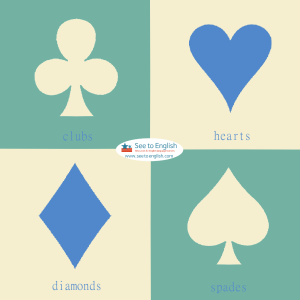#25DaysofEnglish, Day 23 – Which word is which? Lay or lie?
Lay, laid, laid
Lie, lay, lain
Confused yet?

We got you! Here’s an explanation:
Lie
Not to be confused with telling a lie the verb ‘lie’ refers to a person or animal lying on a surface, like lying down to go to sleep.

#25DaysofEnglish, Day 16 – Which word is which? Each or every?
Each and every are words that are extremely similar in meaning
 But don’t get too confused… We’ll help you!
But don’t get too confused… We’ll help you!
Every
Every refers to all of the objects or people in a group, collectively. You can also say everyone/everybody or everything to refer to all people or things in a group.

Examples:
- You have to complete every chore!
- Everyone in my family has brown hair.
- I love everything about this town.
Each
Each means the same as every, but it can also mean that you are considering each item or person in a group individually. You also must use the word ‘each’ with the word ‘other’.

Examples:
- I love each flavor for its special taste!
- Each one of you is my friend.
- We love each other.
Complete the following exercises and post your responses with #25DaysofEnglish to enter to win cool prizes!
- Did you try on _______ pair of shoes before buying them?
- _______ make mistakes.
- _______ here looks so beautiful!
- He has to remember to lock the door ______ time he leaves the house.
- We were considering ________ candidate carefully.
If you want to work with eTeacher Nikki and Pete during this challenge, sign up for the Dream Team!
#25DaysofEnglish, Day 9: Which word is which – Hear or listen?
Hear and listen are verbs that have to do with our ears. Don’t plug your ears!
 They are not as confusing as they may seem…
They are not as confusing as they may seem…
Hear
The verb see is used as a general word for ‘detecting sounds with our ears’. If your ears can perceive sound, you are hearing! (Sounds familiar to the verb see, right?)

Examples:
- The boy was startled when he heard the loud music..
- I can’t hear what you’re saying when you mumble!
- Can you hear the birds chirping?
Listen (to)
‘Listen’ is an active word for ‘hearing’. When you listen, you are paying attention to something and trying to understand it. You can listen to someone or something.
Listen up! means ‘Pay attention!’

Examples:
- I love listening to music.
- I am going to break up with my boyfriend. He hears me, but he never listens.
- If you listen closely, you can hear the ocean.
Complete the following exercises and post your responses with #25DaysofEnglish to enter to win cool prizes!
- Did you _______ me when I said hi?
- Children must _______ to their parents.
- I couldn’t _______ what you were saying. The music was too loud.
- You don’t have to repeat. I _______ you the first time.
- We were ________ to the radio in the car.
- He can’t ________ very well. You have to speak louder.
- _______ to your teacher!
- They _______ to music to relax.
- I can’t believe what I am _______!
- You must _______ carefully to the beeps to pass the driving test.
If you want to work with eTeacher Nikki and Pete during this challenge, sign up for the Dream Team!
#25DaysofEnglish, Day 8: More phrasal verbs!
Our phrasal verbs today are
1) GIVE IN
2) GET OUT
3) TAKE AWAY
Your task is to write sentences for all the meanings of these phrasal verbs. Post them online with the hashtag #25DaysofEnglish for a chance to win some prizes!
If you want to work with eTeacher Nikki and Pete during this challenge, sign up for the Dream Team!
#25DaysofEnglish, Day 5: Writing ‘out of the box’
Your task today is to write a short story using the words found in the boxes below. You can use them in any order, many times or at least once!
Beginners: Use at least 5 words to write your story
Intermediate: Use at least 9 words to write your story
Advanced: Use all the words in your story
Post your response online with the hashtag #25DaysofEnglish for a chance to win some prizes!
|
rainforest |
Alice |
climb |
Norbert |
hack |
|
water |
insects |
brush |
risky |
anaconda |
|
survive |
intimidate |
jaguar |
nervous |
adventure |
Remember that you can sign up to be part of the Dream Team and work directly with eTeacher Nikki on these exercises. She will give you feedback and corrections on your English.
#25DaysofEnglish, Day 3 – Favorite trip podcast
Today Pete and I are talking about our favorite trip to Guatemala!
Let us know about your favorite trip by recording your voice in YouTube or at vocaroo.com. If you’re part of the Dream Team, we will correct your pronunciation and speaking errors!
#25DaysofEnglish, Day 2: Which word is which – See, look at, or watch?
See, look (at) and watch are all verbs that have to do with our eyes. Choosing when to use these verbs might make you nervous…

But don’t worry! Here are some easy explanations:
See
The verb see is used as a general word for ‘detecting images with our eyes’. As soon as you open your eyes, you are seeing (depending on your level of vision of course!)
- The baby can see her mom when she wears her glasses.
- I saw a deer suddenly run onto the street.
- Didn’t you see me? I was waving at you.
Look (at)
When you look, you are concentrating on trying to see something or someone. With look, you are directing your attention to something or someone with your eyes. You can use the preposition at to indicate the direction of your looking.
If you say look for something, it means the same as ‘to search for something’.

Examples:
- Look at those cute kittens!
- What are you looking at?
- Please help me look for my glasses.
Watch
The verb watch implies even more attention than ‘to look’. When you watch something or someone, you are paying close attention and are purposefully focusing your attention. This verb also implies you are watching movement or change.

Examples:
- You better be careful… I’m watching you!
- You have to watch the game closely or you will miss all the action.
- Watch me do this cool magic trick!
Notes:
We watch TV. We watch a movie at home, and see a movie at the movie theater.
Watch out! or Look out! mean that you are in danger and need to pay attention to your surroundings.
Complete the following exercises and post your responses with #25DaysofEnglish to enter to win cool prizes!
1. I can’t ________ anything in the dark.
2. Did you ________ Jurassic World at the movie theater when it came out?
3. Please don’t ________ at me like that.
4. ________! Can you ________ all of those beautiful flowers?
5. The police are _________ his house.
6. When was the last time you ________ your uncle?
7. They are _________ for their dog.
8. We were ________ TV last night when you came home.
9. I think I ________ a ghost!
10. He was so ashamed he couldn’t _______ at anyone.
If you want to work with eTeacher Nikki and Pete during this challenge, sign up for the Dream Team!
Singular ‘They’: What Is It And Should You Use It?
Is this sentence correct? “If you see a pregnant woman on the bus, you should give up your seat to them.”
A while ago, eTeacher Nikki’s article about using ‘they’ as a singular pronoun was published on the website italki, where she teaches English and Spanish. Find the answer to this question in the link below:
italki Articles: Singular ‘They’: What Is It And Should You Use It?
3 ‘playing cards’ idioms

These are called ‘playing cards’ or just ‘cards’
Play your cards right!
Meaning: Make good, strategic decisions; use one’s resources to their advantage
Example: She played her cards right and got a $500 discount on her new car!
He has a card up his sleeve…
Meaning: to have an advantage that other people do not know about
Example: France’s team seems weak, but they have a few cards up their sleeves, and they might win the next game!
The cards are stacked against us.
Meaning: Someone has to face many difficulties.
Example: We have to finish this project by Monday afternoon, but the cards are stacked against us. We have little time, and our team leader is sick at home.
Have to, must, may
There are 3 situations in which you may have to use ‘have to’, ‘must’ or ‘may’. In cases of obligation or necessity (when you are required to do something), cases of certainty (when you are sure of something), or in cases of prohibition or permission (when you are prohibited from or permitted to do something)
Case 1: Obligation or necessity
In this case when you are required to do something, you can use ‘have to’ or ‘must’. When you aren’t required to do something, you must use ‘don’t have to’ (or ‘do not have to’).
- I have to finish my homework by tomorrow. / I must finish my homework by tomorrow.
- I don’t have to finish my homework until next week.
In this case, ‘must’ sounds a bit more formal than ‘have to’.
Case 2: Certainty
When you are sure about something, you can use ‘have to’ or ‘must’. When you are not sure about something, you must use ‘must not’ or ‘mustn’t’.
- This has to be the correct apartment building. Shirley told me it was the only red one on the street. / This must be the correct apartment building. Shirley told me it was the only red one on the street.
- This mustn’t be the correct apartment building. It’s not red like Shirley said it would be.
In this case again, ‘must’ sounds a bit more formal than ‘have to’.
Case 3: Prohibition or permission
In this case, we use ‘may’ for permission and ‘must not’ or ‘mustn’t’ for prohibition.
- You may eat two cookies but no more than that! (granting permission)
- You may not eat more than two cookies. (denying permission for more)
- You must not eat any more cookies! (prohibiting more)
‘May’ sounds very formal, so commonly you will hear the verb ‘can’ replace ‘may’ when asking or granting permission.
- You can eat two cookies but no more than that! (common, colloquial replacement for ‘may’)
Look at the chart below for a summary!
|
Obligation/necessity |
Certainty |
Prohibition/permission |
|
| Positive |
have to, must |
have to, must |
may |
| Negative |
don’t have to |
must not, mustn’t |
must not, mustn’t may not (to deny permission) |



